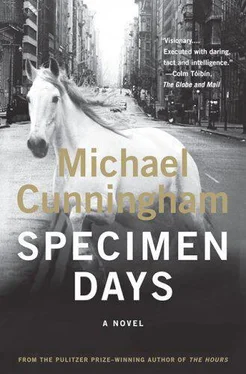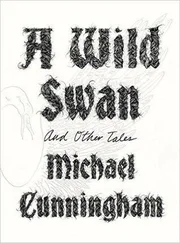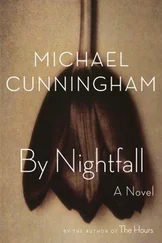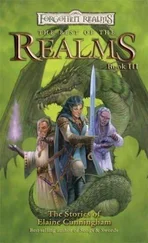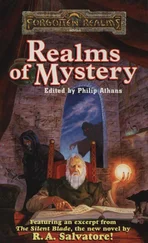Michael Cunningham - Specimen Days
Здесь есть возможность читать онлайн «Michael Cunningham - Specimen Days» — ознакомительный отрывок электронной книги совершенно бесплатно, а после прочтения отрывка купить полную версию. В некоторых случаях можно слушать аудио, скачать через торрент в формате fb2 и присутствует краткое содержание. Город: New York, Год выпуска: 2005, ISBN: 2005, Издательство: Farrar, Straus and Giroux, Жанр: Современная проза, на английском языке. Описание произведения, (предисловие) а так же отзывы посетителей доступны на портале библиотеки ЛибКат.
- Название:Specimen Days
- Автор:
- Издательство:Farrar, Straus and Giroux
- Жанр:
- Год:2005
- Город:New York
- ISBN:0-374-70515-1
- Рейтинг книги:4 / 5. Голосов: 1
-
Избранное:Добавить в избранное
- Отзывы:
-
Ваша оценка:
- 80
- 1
- 2
- 3
- 4
- 5
Specimen Days: краткое содержание, описание и аннотация
Предлагаем к чтению аннотацию, описание, краткое содержание или предисловие (зависит от того, что написал сам автор книги «Specimen Days»). Если вы не нашли необходимую информацию о книге — напишите в комментариях, мы постараемся отыскать её.
Specimen Days — читать онлайн ознакомительный отрывок
Ниже представлен текст книги, разбитый по страницам. Система сохранения места последней прочитанной страницы, позволяет с удобством читать онлайн бесплатно книгу «Specimen Days», без необходимости каждый раз заново искать на чём Вы остановились. Поставьте закладку, и сможете в любой момент перейти на страницу, на которой закончили чтение.
Интервал:
Закладка:
Catherine said, “Here we are.”
A cart rolled by with a golden landscape painted on its side: two cows grazing among stunted trees and a third cow looking up at the name of a dairy, which floated in the golden sky. Was it meant to be heaven? Would Simon want to be there? If Simon went to heaven and it proved to be a field filled with reverent cows, which Simon would he be when he got there? Would he be the whole one, or the crushed?
A silence gathered between Lucas and Catherine, different from the quiet in which they’d walked. It was time, Lucas thought, to say something, and not as the book. He said, “Will you be all right?”
She laughed, a low murmuring laugh he felt in the hairs on his forearms. “It is I who should ask you that question. Will you be all right?”
“Yes, yes, I’ll be fine.”
She glanced at a place just above Lucas’s head and settled herself, a small shifting within her dark dress. It seemed for a moment as if her dress, with its high collar, its whisper of hidden silk, had a separate life. It seemed as if Catherine, having briefly considered rising up out of her dress, had decided instead to remain, to give herself back to her clothes.
She said, “Had it happened a week later, I’d be a widow, wouldn’t I? I’m nothing now.”
“No, no. You are wonderful, you are beautiful.”
She laughed again. He looked down at the stoop, noticed that it contained specks of brightness. Mica? He went briefly into the stone. He was cold and sparkling, immutable, glad to be walked on.
“I’m an old woman,” she said.
He hesitated. Catherine was well past twenty-five. It had been talked about when the marriage was announced, for Simon had been barely twenty. But she was not old in the way she meant. She was not soured or evacuated, she was not dimmed.
He said, “You are not guilty to me, nor stale nor discarded.”
She put her fingertips to his cheek. “Sweet boy,” she said.
He said, “Will I see you again?”
“Of course you will. I shall be right here.”
“But it will not be the same.”
“No. It will not be quite the same, I’m afraid.”
“If only…”
She waited to hear what he would say. He waited, too. If only the machine hadn’t taken Simon. If only he, Lucas, were older and healthier, with a sounder heart.
If only he could marry Catherine himself. If only he could leave his body and become the dress she wore.
A silence passed, and she kissed him. She put her lips on his.
When she withdrew he said, “The atmosphere is not a perfume, it has no taste of the distillation, it is odorless, it is for my mouth forever, I am in love with it.”
She said, “You must go home and sleep now.”
It was time to leave her. There was nothing more to do or say. Still, he lingered. He felt as he sometimes did in dreams, that he was on a stage before an audience, expected to sing or recite.
She turned, took her key from her reticule, put it in the lock. “Good night,” she said.
“Goodnight.”
He stepped down. From the sidewalk he said to her retreating form, “I am of old and young, of the foolish as much as the wise.”
“Good night,” she said again. And she was gone.
He didn’t go home, though home was the rightful place for him. He went instead to Broadway, where the living walked.
Broadway was itself, always itself, a river of light and life that flowed through the shades and little fires of the city. Lucas felt, as he always did when he walked there, a queasy, subvert exaltation, as if he were a spy sent to another country, a realm of riches. He walked with elaborate nonchalance, hoping to be as invisible to others as they were visible to him.
On the sidewalk around him, the last of the shoppers were relinquishing the street to the first of the revelers. Ladies in dresses the color of pigeons’ breasts, the color of rain, swished along bearing parcels, speaking softly to one another from under their feathered hats. Men in topcoats strode confidently, spreading the bleak perfume of their cigars, flashing their teeth, slapping the stone with their licorice boots. Carriages rolled by bearing their mistresses home, and the newsboys called out, “Woman murdered in Five Points, read all about it!” Red curtains billowed in the windows of the hotels, under a sky going a deeper red with the night. Somewhere someone played “Lilith” on a calliope, though it seemed that the street itself emanated music, as if by walking with such certainty, such satisfaction, the people summoned music out of the pavement.
If Simon was in heaven, it might be this. Lucas could imagine the souls of the departed walking eternally, with music rising from the cobblestones and curtains putting out their light. But would this be a heaven for Simon? His brother was (had been) loud and rampant, glad of his songs and his meals. What else had made him happy? He hadn’t cared for curtains or dresses. He hadn’t cared about Walt or the book. What had he wanted that this heaven could provide?
Broadway would be Lucas’s heaven, Broadway and Catherine and the book. In his heaven he would be everything he saw and heard. He would be himself and Catherine; he would be the calliope and the lamps; he would be shoes striking pavement, and he would be the pavement under the shoes. He would ride with Catherine on the toy horse from Niedermeyer’s window, which would be the size of an actual horse but perfect in the way of toys, moving serenely over the cobblestones on its bright red wheels.
He said, “I am large, I contain multitudes.” A man in a topcoat, passing by, glanced at him strangely, as people did. The man would be among the angels in Lucas’s heaven, just as plump and prosperous as he was on earth, but in the next world he would not consider Lucas strange. In heaven, Lucas would be beautiful. He’d speak a language everyone understood.
The rooms when he returned to them were dim and silent. Here were the stove and the chairs and the carpet, its pattern ghostly in the dark. Here on the table was the music box that had ruined the family. It still stood cheerfully on the tabletop, a little casket with a rose carved into its lid. It could still play “Blow the Candle Out” and “Oh, Breathe Not His Name” as well as it did the day Mother bought it.
Here, too, were the faces, looking down from the walls, revered and consulted, dusted regularly:
Matthew at the center, six years old, dark-eyed and primly serious, rehearsing for the influenza that would make a picture of him a year later. Here was sly Uncle Ian, who found it humorous that he would one day be only a face on a wall; here the round satisfied countenance of Grandmother Aileen, who believed that living was a temporary inconvenience and death her true and only home. They were all, according to Mother, in heaven, though what she meant by heaven was an Ireland where no one starved.
Mother would have to make room for Simon’s picture, but the wall was full. Lucas wondered if one of the older dead would have to be taken away.
He paused before the door to his parents bedroom. He felt their breathing on the other side, wondered over their dreams. He stood for a moment, alone in the slumbering darkness, before going into his and Simon’s room.
Here was their bed, and above the bed the oval from which St. Brigid looked out, suffering and ecstatic, crowned by a fiery circle that Lucas had thought, when he was younger, represented her headache. Here were the pegs on which the clothes were hung, his and Simon’s. St. Brigid looked sorrowfully at the empty clothes as she would at the vacant bodies of the faithful after their souls had gone. She seemed to be wondering, from under her circle of light, Where were the mechanisms of wish and need that had once worn shirts and trousers? Gone to heaven. Would it be like Broadway or Ireland? Gone to boxes in the earth. Gone into pictures and lockets, into rooms that refused to shed their memories of those who had eaten and argued and dreamed there.
Читать дальшеИнтервал:
Закладка:
Похожие книги на «Specimen Days»
Представляем Вашему вниманию похожие книги на «Specimen Days» списком для выбора. Мы отобрали схожую по названию и смыслу литературу в надежде предоставить читателям больше вариантов отыскать новые, интересные, ещё непрочитанные произведения.
Обсуждение, отзывы о книге «Specimen Days» и просто собственные мнения читателей. Оставьте ваши комментарии, напишите, что Вы думаете о произведении, его смысле или главных героях. Укажите что конкретно понравилось, а что нет, и почему Вы так считаете.
